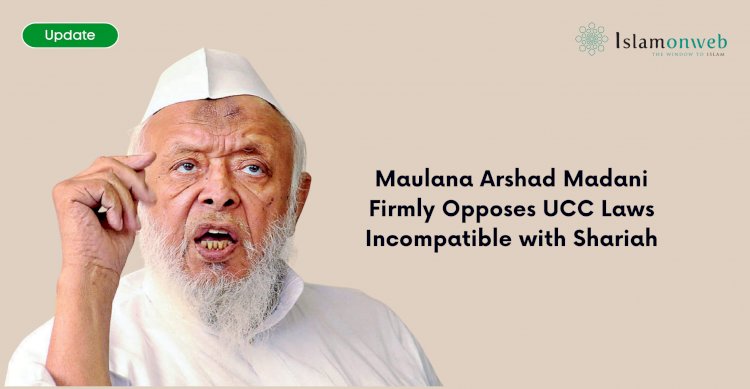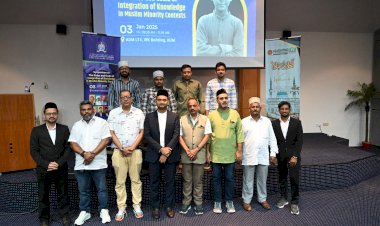Maulana Arshad Madani Firmly Opposes UCC Laws Incompatible with Shariah
In a fervent statement, Arshad Madani, a prominent voice in the Indian Muslim community and president of the Jamiat Ulama-i-Hind, expressed strong opposition to the implementation of a Uniform Civil Code (UCC), citing it as discriminatory against Shariah law. Madani’s remarks come amidst ongoing debates regarding the UCC’s viability and its implications for religious minorities in India.
In a statement Arshad Madani asks ‘Why the discrimination in Uniform Civil Code? If Scheduled Tribes can be exempted in the passed bill due to the Constitution, why not Muslims? Any law against Shariah is not acceptable for us’.
Madani’s assertion against the UCC underscores a deep-seated concern within the Muslim community regarding the potential infringement upon their religious autonomy and customary practices. Shariah law, derived from Islamic principles and teachings, governs various aspects of Muslim life, including family matters such as marriage, divorce, and inheritance. For Madani and many others, any attempt to supersede Shariah with a uniform code is perceived as an encroachment upon their religious rights and cultural identity.
In his statement, Madani unequivocally rejects the notion of accepting any law that contradicts Shariah, emphasizing its non-negotiable status within the Muslim community. This stance reflects a broader sentiment among Indian Muslims who view Shariah as integral to their faith and personal conduct. The pushback against the UCC is not merely about legal reforms but also about safeguarding religious freedoms and preserving cultural heritage.
Moreover, Madani contends that the UCC, if enforced, would exacerbate existing disparities and injustices faced by minority communities, particularly Muslims. He argues that a UCC overlooks the diverse religious and cultural practices across India and risks marginalizing those who adhere to non-mainstream norms. By advocating for the preservation of Shariah-based laws, Madani seeks to protect the rights and interests of Indian Muslims against perceived discriminatory measures.
The debate surrounding the UCC is deeply rooted in India’s socio-political landscape, where issues of identity, secularism, and minority rights are often contentious. While proponents of the UCC advocate for a common set of laws to promote national integration and gender equality, critics like Madani view it as an imposition of majoritarian values that undermine religious pluralism.
Madani’s opposition to the UCC underscores the complexity of reconciling religious diversity with the pursuit of legal uniformity in a secular democracy like India. As discussions on the UCC continue, it is essential to engage in dialogue that respects the concerns and perspectives of all stakeholders, ensuring that any legal reforms uphold constitutional principles of equality and religious freedom while fostering social cohesion.
In conclusion, Arshad Madani’s staunch rejection of the Uniform Civil Code reflects broader apprehensions within the Indian Muslim community regarding the potential infringement upon their religious rights and cultural practices. His advocacy for the preservation of Shariah law underscores the importance of respecting religious diversity and minority rights in the ongoing discourse on legal reforms in India. As the debate persists, finding a balanced approach that addresses concerns of both uniformity and diversity remains imperative for upholding the principles of secularism and inclusivity in the country.
Credit: Muslim Mirror
Disclaimer
The views expressed in this article are the author’s own and do not necessarily mirror Islamonweb’s editorial stance.
2 Comments
-

-

Web Desk
7 months ago
Please consult with the reliable and knowledgeable scholars in your area. They will be able to give a fatwa after verifying the issue.
-
-

























Leave A Comment